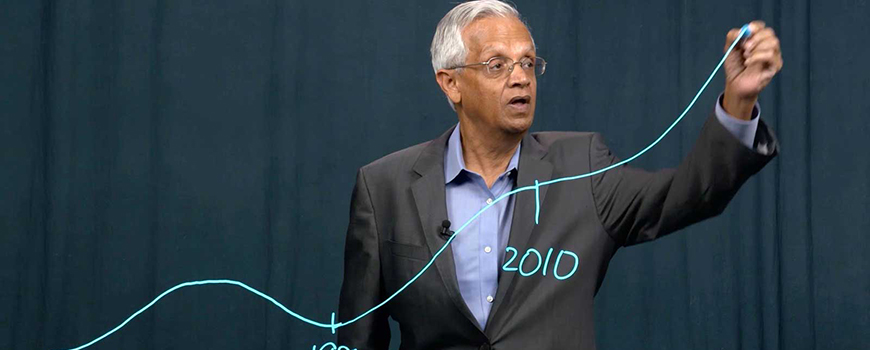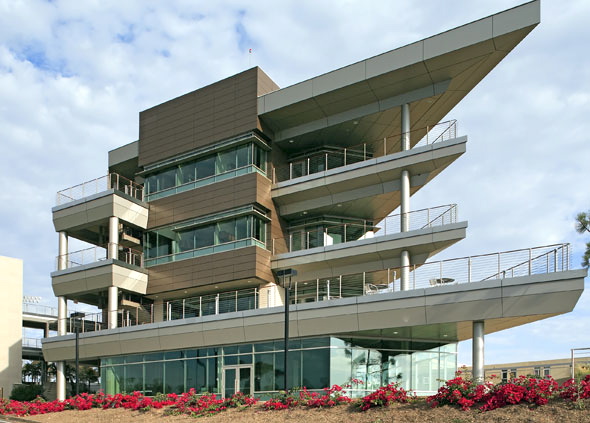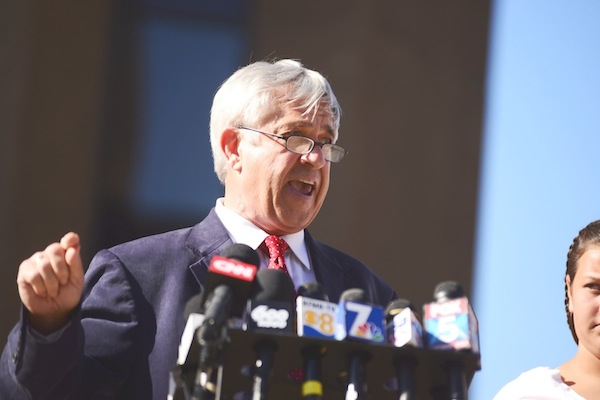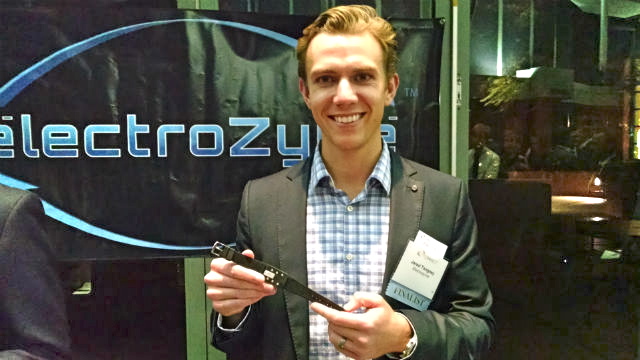Daily Business Report-Nov. 27, 2017
Scripps Oceanography researcher V. Ramanathan in 2015 video ‘Bending the Curve.’ (Courtesy of Scripps Oceanography)
New Multicampus Course Gets Students
Involved in Climate Change Solutions
A new course on climate change solutions is coming to the University of California, and not just on one campus: six UC campuses will be teaching the class, and the lectures will be delivered by the top experts in their fields from across the UC system.
The brainchild of professor Veerabhadran “Ram” Ramanathan from Scripps Institution of Oceanography at UC San Diego, the course grew out of UC’s groundbreaking report “Bending the Curve: Ten scalable solutions for carbon neutrality and climate stability,” as well as the university’s Carbon Neutrality Initiative, which commits UC to reaching operational carbon neutrality by 2025.
The new undergraduate course, “Bending the Curve: Climate Change Solutions,” follows the interdisciplinary nature of the report and hopes to attract students from various academic backgrounds and fields of study to have them work together in identifying and exploring solution-focused projects.
One of the 10 solutions from the “Bending the Curve” report became a call to action for Ramanathan: “Foster a global culture of climate action through coordinated public communication and education at local to global scales.” In response, Ramanathan designed a course about creating scalable solutions to climate change that was itself scalable, with the possibility of being taught not just at UC San Diego, but across the UC system and beyond.
“The idea is that with a course like ‘Bending the Curve,’ we could scale this up to all of California — hopefully even beyond,” said Ramanathan.
The course is framed around the report’s 10 scalable solutions and features video lectures from top UC experts on each topic. The lectures cover the multidimensional aspect of climate change, discussing climate science, societal transformation, technology, ecosystem management, governance, economics, communication and more.
“There is no single technology that will solve climate change,” said Ramanathan. “If we want to prepare our students to fight global warming, they need to understand the scientific and the human dimensions of the problem, and we need to give them the tools to address the problem.”
Unlike a typical lecture-based course, “Bending the Curve” uses a dynamic “flipped” classroom approach. Students learn content through online video lectures before class and come prepared to discuss the topic with the instructor and classmates in-person. Each instructor has flexibility to shape and adapt the course based on their expertise and the interests of the students. With students learning the material prior to discussion, this model of instruction engages the student in more active learning and provides a richer, more collaborative in-person experience.
To bring this all to life, the course was designed by an interdisciplinary team that included UC Santa Barbara social scientist Hahrie Han, an expert in social movements, and Alan Roper, an instructional designer at UC Office of the President (UCOP), with technical assistance by UC San Diego research associate Astrid Hsu. The Innovative Learning Technology Initiative (ILTI) at UCOP coordinated the efforts between campus participants across the system.
“It was exciting to get to discuss some real examples of solutions for climate mitigation, and to have such a dynamic set of students in the course,” said Lara Streiff, a student who took the course when it was piloted at UC San Diego. “We were fortunate to hear from professors throughout the UC system to get different perspectives. Many of the students were also in programs more related to international policy, so they brought unique views to the issues that you may not get the chance to explore in purely science-based courses.”
Streiff’s work in the class led to a research project with Ramanathan, and a paper published in the journal Urban Climate in September 2017. This was no fluke: Ramanathan is hoping that the work done by students in the class can have a chance to have a larger impact. Through a unique partnership with the California Digital Library (CDL), students will have the opportunity to develop their course projects into published open-access articles.
“Bending the Curve” will be taught as an undergrad course during the Winter 2018 quarter at UC San Diego, UC Davis and UC Irvine, and will be coming to UC Santa Barbara, UC Riverside and UC Santa Cruz later in 2018.
– Andy Murdock, University of California Office of the President
_____________________
General Atomics Acquires
Assets of Surrey-US LLC
General Atomics has acquired the majority of the assets of Surrey Satellite Technology US LLC, an Englewood, Colo.-based provider of innovative small satellite technologies, systems and services. The assets and workforce will be integrated into General Atomics’ Electromagnetic Systems Group to support the organization’s growth initiatives focused on the development and delivery of small satellite and advanced payload systems.
Surrey-US was established in 2008 as a wholly-owned subsidiary of UK-based Surrey Satellite Technology Ltd. to address the U.S. market and its core capabilities include the complete design, manufacture, launch and operation of small satellites.
_____________________
Cubic Wins Mobile Ticketing Contract
Cubic Corporation’s Cubic Transportation Systems business division was awarded a mobile ticketing contract for Germany’s Rhein-Sieg area, which includes Cologne, the nation’s fourth largest city. The contract will support the Cologne transport operator Kölner Verkehrs-Betriebe AG (KVB) and is valued at $1.09 million for five years plus estimated $715,909 from transaction fees.
_____________________
SDSU Ranked No. 11 Among
Best Colleges for LGBTQ Students
San Diego State University is No. 11 among the top 25 best colleges for LGBTQ students, according to a new ranking released jointly by Best Colleges and Campus Pride.
The evaluation looks at academic excellence and affordability metrics, as well as a Campus Pride Index, a tool that compares LGBT-friendly policies, programs and practices on college campuses.
Among SDSU’s assets, Best Colleges cites the Pride Center; the university’s LGBT studies major — only the second of its kind in North America; and the annual Lavender Graduation ceremony, which celebrate the achievements of graduating LGBTQ students and also awards faculty and staff who have enhanced campus climate for these diverse Aztecs.
_____________________
New Player in Alzheimer’s
Disease Pathogenis Identified
Scientists at Sanford Burnham Prebys Medical Discovery Institute (SBP) have shown that a protein called membralin is critical for keeping Alzheimer’s disease pathology in check. The study, published in Nature Communications, shows that membralin regulates the cell’s machinery for producing beta-amyloid, the protein that causes neurons to die in Alzheimer’s disease.
“Our results suggest a new path toward future treatments for Alzheimer’s disease,” says Huaxi Xu, the Jeanne and Gary Herberger Leadership Chair of SBP’s Neuroscience and Aging Research Center. “If we can find molecules that modulate membralin, or identify its role in the cellular protein disposal machinery known as the endoplasmic reticulum-associated degradation system, this may put the brakes on neurodegeneration.”
_____________________
Personnel Announcements
Norma A. Morales Joins Balestreri Potocki & Holmes
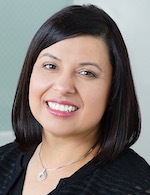
Norma A. Morales has joined the law firm of Balestreri Potocki & Holmes firm as an associate. An experienced litigator, Morales’ practice focuses on the resolution of complex construction-related disputes, contract disputes and product liability. She also provides business consulting for developers and contractors for ongoing and new projects.
Morales received her B.A. from the University of California, Berkeley in 1996 and her J.D. from the University of the Pacific, McGeorge School of Law in 2002.
Balestreri Potocki & Holmes is a boutique law firm headquartered in San Diego. The firm provides representation to a range of business clients with an emphasis in the legal advocacy and consultation of business owners and companies working in or related to the construction, transportation and hospitality industries.

